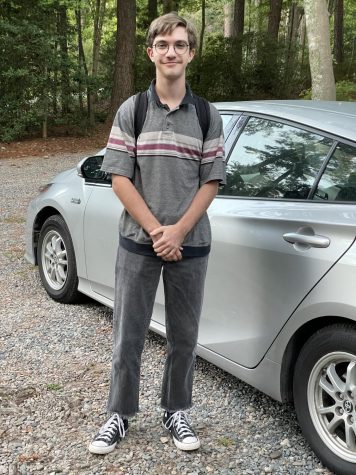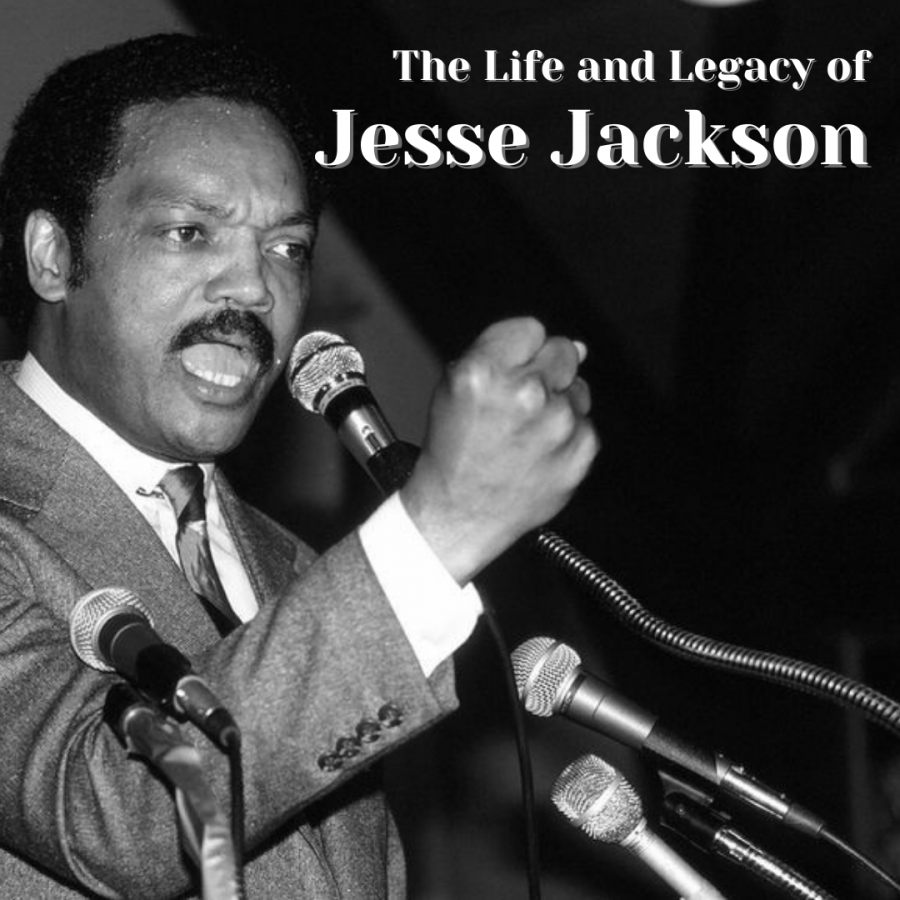The Life and Legacy of Jesse Jackson
In 1984, at a campaign rally in Philadelphia, Rev. Jesse Jackson proclaimed that in 1980 Reagan won by a “margin of despair”. He called out the numbers of unregistered students, Blacks, and Hispanics, and referred to them as “rocks, just layin’ around,” an allusion to the biblical story of David and Goliath. At that rally, Jesse Jackson called for the creation of a new coalition, to rise above race and sex and create a new leadership that worked for all Americans. Four years later, in 1988, he went on to win 6.8 million votes placing second in the democratic primary. He became the first Black American to be a major contender in a national election. Jesse Jackson’s story is not taught in schools and it’s not much more than a distant memory in the minds of older democrats, but it is imperative to American politics today and must be remembered as such.
Jesse was born on October 8, 1941, in Greenville, South Carolina, where he went to public school and was involved in sports and student government. As a Black child in the American south, he experienced the brutality of Jim Crow segregation. He was taught to accept this oppression until the Montgomery Bus Boycott sparked protests against the system nationwide. The civil rights movement shaped Jackson’s politics and beliefs. He later got involved in the protests and in 1965 began working for Dr. Martin Luther King Jr. and 1965 was chosen by Dr. King to head Operation Breadbasket, the economic arm of the Southern Christian Leadership Conference. In 1971, Jackson started Operation PUSH (People United to Save Humanity), an organization focused on promoting black liberation and progressive economic policies in electoral politics through organizing and protest. He later started an additional organization called Rainbow Coalition, to unite people across race and gender under a political movement for progressive change. Both organizations eventually merged to form the organization Rainbow PUSH. Jesse Jackson wanted to continue the legacy of Dr. Martin Luther King Jr. He believed that America needed a revolution in politics to uphold MLK’s message of racial and economic justice for all. He believed he could help continue this legacy with Rainbow PUSH and by running for president of the United States.
After President Jimmy Carter failed to use the systems put in place by the new deal era to address an economic crisis, President Ronald Reagan and the Republican party were ushered into power, with a new economic message of economic deregulation and government austerity. With the forming of the Reagan coalition, the country’s political alignment saw a massive shift to the right. There were no longer major politicians fighting for workers’ rights, economic regulation, and public welfare and infrastructure spending. Jackson attempted to revive this. In 1984, Jackson ran for president placing third in the democratic party primary, winning 3.2 million votes and making him the first African American to become a major contender in a national election. Much of his platform was centered around bringing back the New Deal policies that Reagan had done away with and expanding upon that with progressive policies like a single-payer, universal healthcare system. He also strongly criticized the War on Drugs which was disproportionately targeting African Americans. Jackson’s progressive policies and views on social issues, as well as his strong public speaking abilities, gained him a large and enthusiastic base of supporters consisting mostly of black people and some white youth.
In 1988, Jackson ran for president once again, this time placing second in the primary with 6.9 million votes. For a short time, he was considered the democratic front runner after winning the Michigan primary which put him in the lead with primary delegates. He later lost the primary to more moderate candidates; Micheal Dukakis, who then lost the general election to George H.W. Bush. This election Jackson was able to double his support from his last run, with a strong, inclusive message of bringing people together under a new coalition, a coalition of working people from all races and genders, to fight for an agenda that works for all Americans. This was the message of the Rainbow Coalition, which was Jesse Jackson’s lifetime goal. The Rainbow Coalition was originally a name given to a coalition started by Fred Hampton of the Black Panthers, meant to bring together predominately black, white, radical socialist groups. But the idea of the Rainbow Coalition, a multi-racial coalition to fight for working-class politics has persisted since its inception and has manifested in multiple left-wing movements.
Jesse Jackson’s political revolution was an inspiration for many at the time and remains an inspiration to those who remember it. In the 2020 democratic primary, Bernie Sanders was endorsed by Jackson, who is one of Sander’s political heroes as he has said. Jackson believed Sanders’ campaign could harness the same energy he had harnessed in 1988, the energy to unite people in a rainbow coalition to fight for universalist policies that work for all of us not just the wealthy. Jesse Jackson’s role in the 1988 primary was not only an inspiration to other American progressives, but it also influenced the Democratic party going forward. Minority groups have always been an important part of the democratic electorate, and Jesse Jackson’s message of the rainbow coalition would only help solidify that.
Jackson was elected as the Shadow Senator of Washington D.C. In 1991, the position of which is to lobby for the statehood of Washington D.C. He continued his activism throughout the ’90s and early 2000s, notably advocating for the end of the Iraq war during the Bush presidency. He also endorsed Barack Obama in the 2008 democratic primary and advocated for the legalization of gay marriage under the Obama presidency in 2012. Jesse Jackson’s story remains untold in our schools these days. It’s important to remember his legacy and message because it continues to be important to American politics. In a time when the civil rights movement has been revived to address the systemic injustices apparent in our criminal justice system and all across American institutions, it is important to remember Jesse Jackson and his movement to gain political power for working people and Racial Justice. If we are ever to win universal economic justice, it is clear that we will need to unite under a rainbow coalition.

(He/him)
This is Owen! He's an aspiring musician, an amateur skater, a middle child, a JBrekkie enjoyer, and a staff writer for the Eagle's Eye. Owen...










